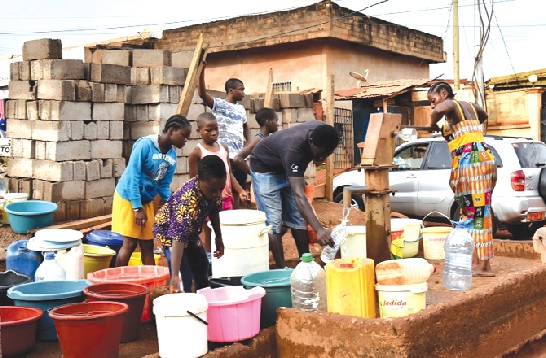The Central Regional Manager of the Ghana Water Limited (GWL), John Eric Kwofie, has disclosed that outstanding arrears owed the company in the region have reached a staggering GH₵69,517,644.05.
He expressed grave concern that the accumulation of these debts was significantly hampering the company’s ability to operate efficiently, affecting service delivery and the overall sustainability of water supply in the region.
Speaking at a media engagement to commemorate World Water Day on the theme "Water Conservation: Let's Make It Our Way of Life," last Friday, Mr Kwofie emphasised the urgent need for customers to honour their financial obligations to the company.
He said that the failure to clear the arrears had placed enormous pressure on the GWL, making it increasingly difficult to pay workers, purchase essential water treatment chemicals, maintain infrastructure and undertake new projects aimed at improving service delivery.
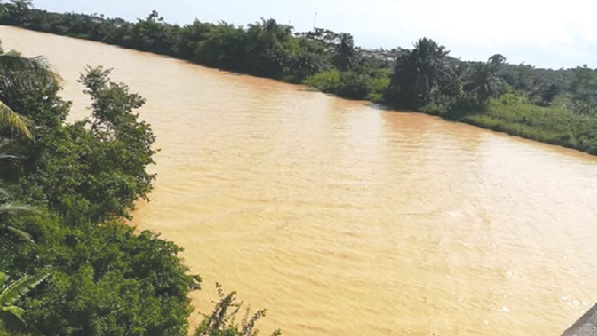
He stated that the defaulters included private institutions, companies and entire communities, urging all those in debt to settle their bills promptly.
Paperless billing, E-payment system
To enhance efficiency and ease the burden of bill payments, Mr Kwofie announced that the GWL had fully transitioned to a paperless billing system.
As part of this initiative, he said the company had introduced an electronic billing platform, allowing customers to conveniently pay their bills by dialing *1010# on all networks.
“This new e-payment system eliminates the need for customers to spend time and money travelling to the GWL offices just to settle their bills. Now, payments can be made from anywhere, at any time,” he stated, adding that the digital transition would greatly improve revenue collection and service efficiency.
He gave the assurance that the GWL was committed to improving service delivery and appealed for public cooperation and responsible water usage.
Illegal connections
The Regional Water Quality Assurance Manager, Nicholas Okyere, highlighted the growing problem of illegal water connections, which, he revealed, resulted in the company losing approximately 20 per cent of its revenue.
Mr Okyere also raised concerns over meter tampering, where individuals manipulate meters to avoid accurate billing.
Additionally, he revealed that some customers had resorted to stealing the company's water meters, making it difficult for the company to track consumption and enforce payments.
He warned that such activities were putting immense pressure on the company’s ability to maintain a stable and reliable water supply.
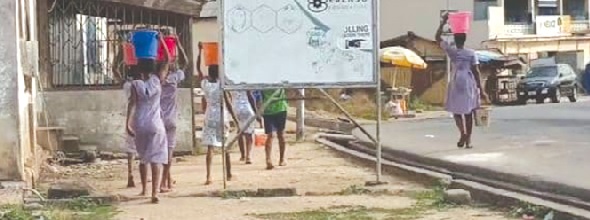
To curb this menace, he disclosed that the GWL had introduced a reward system to encourage public participation in exposing water and meter theft.
Under this scheme, individuals who report cases of meter tampering or illegal connections, leading to the arrest of culprits, would be rewarded.
“Water theft is a major challenge that affects not just the company but also law-abiding customers who rely on us for uninterrupted supply. We urge the public to assist us in fighting this issue by reporting any illegal activities they come across,” he appealed.
Water supply and climate change
Providing an update on water supply, Mr Okyere acknowledged that while there had been slight improvements compared to last year, the company continued to face significant challenges due to climate change.
He revealed that the previous year and the early months of this year had been particularly difficult, as prolonged dry seasons and erratic rainfall patterns had affected water sources, making it hard to meet demand.
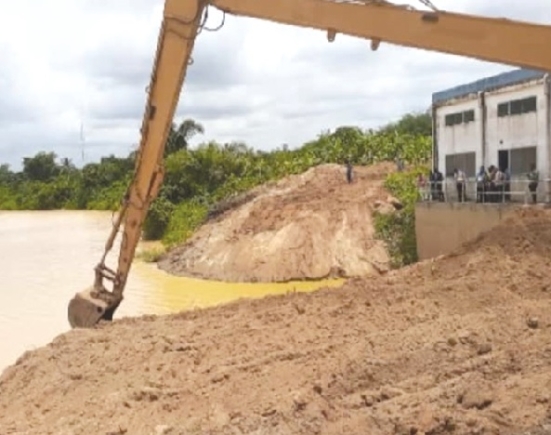
He further explained that farming activities near water bodies were exacerbating the problem.
He pointed out that farmers’ increased use of agrochemicals, fertilisers and pesticides was contaminating water sources, while deforestation and soil erosion were causing increased sedimentation in rivers and reservoirs.
“We are seeing more cases of algal blooms in water sources due to nutrient pollution. Farming is now taking place dangerously close to water bodies and this is accelerating the degradation of our water quality,” he warned.
Declining water resources
A former Central Regional Director of the Community Water and Sanitation Agency, Dr Ato Quansah, provided an analysis of water availability in the Central Region, pointing out that the area predominantly relied on surface water, while some parts depended on groundwater.
He stated that over the past 50 years, the availability of fresh water had declined by half, whereas the human population had doubled.
“If you are 60-years-old today, when you were 10, the amount of fresh water available was twice what it is now.” Meanwhile, he said water resources had declined and the demand had surged due to rapid population growth, making it increasingly difficult to serve everyone.
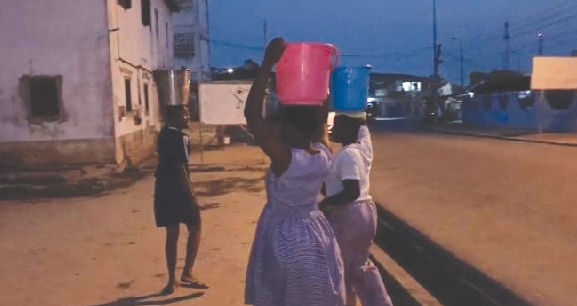
He further warned that water quality had deteriorated across all major benchmarks, including chemically and physically, placing the country in what he described as “a very dire situation.”
Urgent conservation measures
Given the alarming trends, Dr Quansah stressed that water conservation was no longer an option but a necessity.
He urged individuals, businesses and institutions to adopt sustainable water usage habits, emphasising that failure to act now would lead to severe water shortages in the near future.
“We are in a very critical situation and the only solution left is to conserve water. If we fail to do so now, we risk facing an even more severe water crisis in the years ahead,” he cautioned.
He called on the public to play an active role in protecting water resources by avoiding wasteful usage, reporting illegal connections and advocating policies that promote water sustainability.
His remarks underscored the urgency of collective action to safeguard water resources for future generations.
Residents
Some residents the Daily Graphic spoke to expressed varying opinions on the services of the GWL.
While some said they received bills that did not reflect the water supplied to them, others said they were satisfied with the bills received and called for a regular supply of water.
A resident of Greenhill in Cape Coast, Maame Adwoa, said water had not flowed through her tap for months but the GWL had billed her recently to the tune of GH¢1,000.
"If we are billed for water we have not used, how do we pay such bills?" she queried.
She said she had for months resorted to well water but now had a huge bill to pay, adding that she would seek explanation from the office of the GWL.
However, another resident of Greenhill in Cape Coast, Daniel Tetteh, said he paid his bills regularly and was satisfied with the bills and services of the GWL so far, adding that all he needed was for the taps to flow regularly.
A resident of Yamoransa, Eva Adjei, said water supply had been erratic over the past months.
"It goes off for a week and comes for two days, yet we are billed regularly, and it’s difficult to pay for what you have not used," she said.
Ms Adjei said that while the water supply was irregular GWL sent consumers regular bills for water supposedly consumed.
"For fear of our lines being disconnected, we pay the bills even though we know we have not consumed that much," she said.
Another resident of Mempeasem in Cape Coast, Evelyn Wilson, said she was happy with the GWL services and bills and that her water flow had been regular.
She however, expressed worry over quality, calling for efforts to further improve quality.
